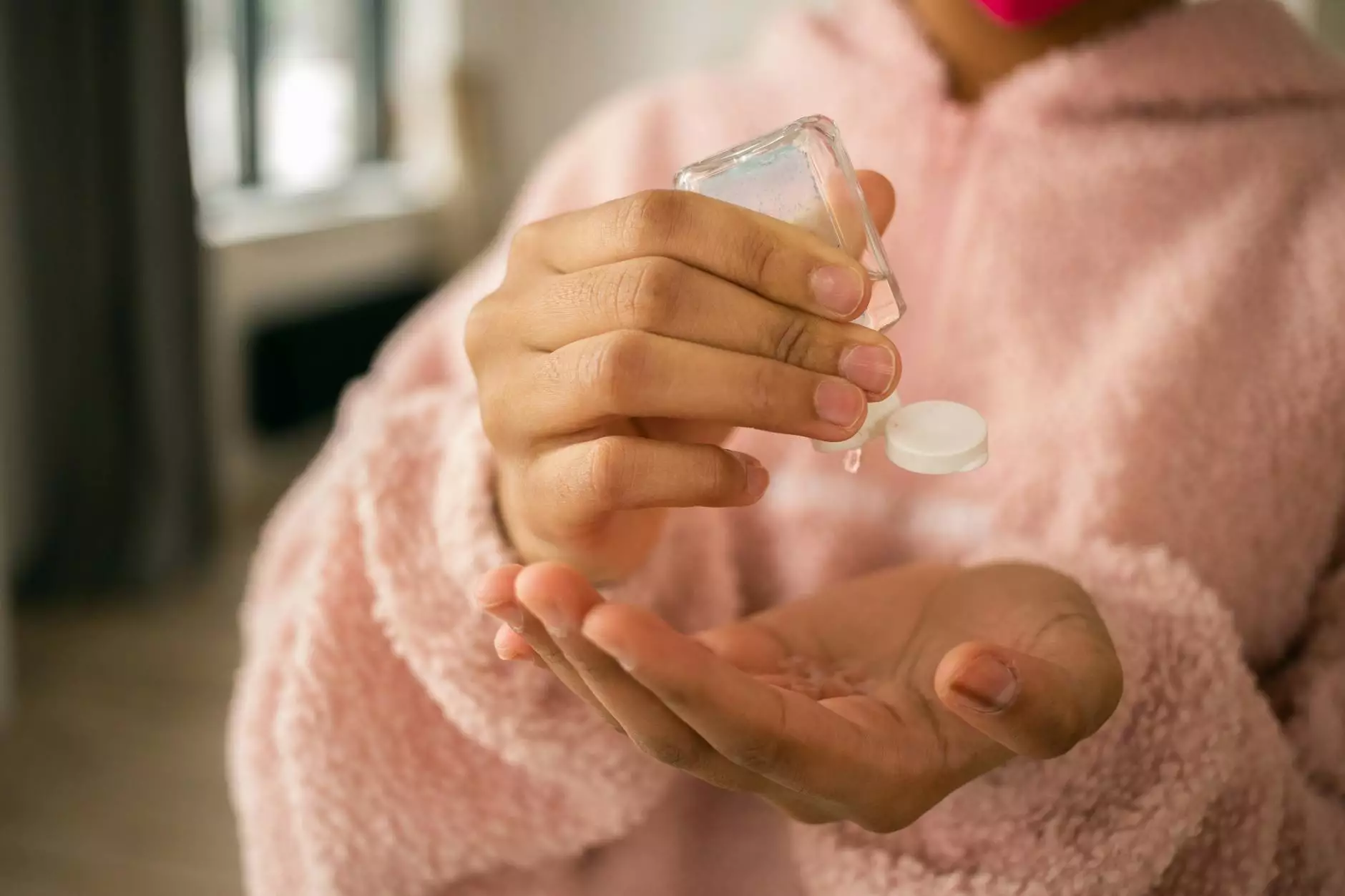The Importance of Hospital Surface Disinfectants in Healthcare

In the rapidly evolving field of healthcare, maintaining a clean and safe environment is paramount. One of the essential elements in ensuring patient safety and preventing the spread of infections is the effective use of hospital surface disinfectant. With the increasing emphasis on infection control and hygiene, the role of hospital surface disinfectants cannot be overstated. This article explores the significance of these disinfectants, their proper application, and their advantages in a hospital setting.
What are Hospital Surface Disinfectants?
Hospital surface disinfectants are specialized cleaning agents designed to eliminate a wide range of pathogens on surfaces found within healthcare facilities. These disinfectants are utilized on surfaces such as countertops, medical equipment, waiting rooms, and patient rooms to ensure a sterile environment for both patients and healthcare workers. They are formulated to kill bacteria, viruses, fungi, and other microorganisms that contribute to hospital-acquired infections (HAIs).
Importance of Disinfection in Healthcare Settings
The need for stringent disinfection protocols in healthcare settings is driven by several factors:
- Infection Control: HAIs are a significant concern in hospitals, leading to longer hospital stays, increased healthcare costs, and higher morbidity rates. Effective disinfection helps to reduce the incidence of these infections.
- Patient Safety: Patients undergoing treatment or surgery have compromised immune systems. Ensuring that surfaces are disinfected reduces the risk of cross-contamination and protects vulnerable patients.
- Regulatory Compliance: Healthcare facilities are subject to stringent regulations and guidelines regarding infection control and disinfection. Proper use of hospital surface disinfectants helps in meeting these requirements.
- Enhanced Public Trust: Maintaining a clean and disinfected environment fosters trust among patients and their families, encouraging them to seek the care they need without hesitation.
Types of Hospital Surface Disinfectants
Understanding the different types of hospital surface disinfectants is essential for effective cleaning and disinfection. Here are some common types:
- Alcohol-Based Disinfectants: Typically containing isopropyl alcohol or ethanol, these are effective against a variety of microorganisms and evaporate quickly, making them ideal for sensitive equipment.
- Phenolic Disinfectants: Known for their broad-spectrum properties, phenolics are commonly used in hospitals, especially for disinfecting hard surfaces. They are effective against bacteria, viruses, and fungi.
- Quaternary Ammonium Compounds (Quats): These are effective against a wide array of pathogens and are often used on surfaces that come into contact with patients.
- Chlorine-Based Disinfectants: These are powerful disinfectants that are effective against bacteria and viruses but can be corrosive to some surfaces, requiring careful usage.
- Hydrogen Peroxide: This is a versatile disinfectant that leaves no residue and is safe for most surfaces. It's effective against viruses and spores.
Best Practices for Using Hospital Surface Disinfectants
To maximize the effectiveness of hospital surface disinfectants, adhering to best practices is crucial. Here are some guidelines to consider:
1. Read Labels and Instructions
Before using any disinfectant, it’s critical to read the product label and manufacturer's instructions. This ensures that you are aware of:
- Contact time required for effective disinfection
- Surface compatibility and any dilution requirements
- Safety precautions and necessary personal protective equipment (PPE)
2. Pre-Clean Surfaces
Before applying a disinfectant, surfaces should be pre-cleaned to remove any soil, organic matter, or biofilms. This step is essential as it allows the disinfectant to work more effectively.
3. Allow Proper Contact Time
It’s crucial to allow the disinfectant to remain on the surface for the specified contact time. This ensures that the product effectively kills the pathogens present.
4. Use Appropriate PPE
Staff should wear appropriate personal protective equipment, such as gloves and masks, when working with disinfectants to prevent exposure to harmful chemicals.
5. Regular Training and Assessment
Regular training and assessments should be conducted for staff on the proper use of disinfectants. This ensures compliance with protocols and helps maintain high standards of cleanliness.
Benefits of Hospital Surface Disinfectants
Utilizing hospital surface disinfectants yields numerous advantages, including:
1. Reduction of HAIs
By effectively eliminating harmful pathogens on surfaces, disinfectants play a crucial role in reducing the incidence of hospital-acquired infections.
2. Enhanced Patient Care
A clean and disinfected environment improves patient outcomes and satisfaction. Patients can rest assured that their health and safety are prioritized during their care.
3. Compliance with Regulations
Using hospital surface disinfectants helps healthcare facilities comply with local and national health regulations, reducing the risk of penalties and enhancing the facility's reputation.
4. Increased Longevity of Medical Equipment
Regular disinfection can prolong the lifespan of medical equipment by preventing the buildup of harmful microorganisms and contaminants.
Choosing the Right Hospital Surface Disinfectant
When selecting a hospital surface disinfectant, several factors should be taken into account:
- Effectiveness: Ensure the disinfectant is proven effective against the pathogens prevalent in your facility.
- Surface Compatibility: Check that the disinfectant is safe for use on the surfaces you intend to treat.
- Ease of Use: Consider the application process, as some disinfectants may require dilution or special equipment.
- Safety: Look for products that are safe for both staff and patients, minimizing the risk of chemical exposure.
Conclusion
The significance of hospital surface disinfectants in promoting a safe and healthy healthcare environment is undeniable. By understanding their importance and adhering to best practices, healthcare facilities can significantly reduce the risk of infections, enhance patient care, and ensure compliance with health regulations. Moving forward, investing in high-quality disinfectants and training staff effectively will play a key role in maintaining a clean and safe environment for everyone.
For top-quality hospital surface disinfectants and medical supplies, visit medalkan.com today. Equip your facility with the tools necessary to uphold the highest standards of hygiene and patient safety.



